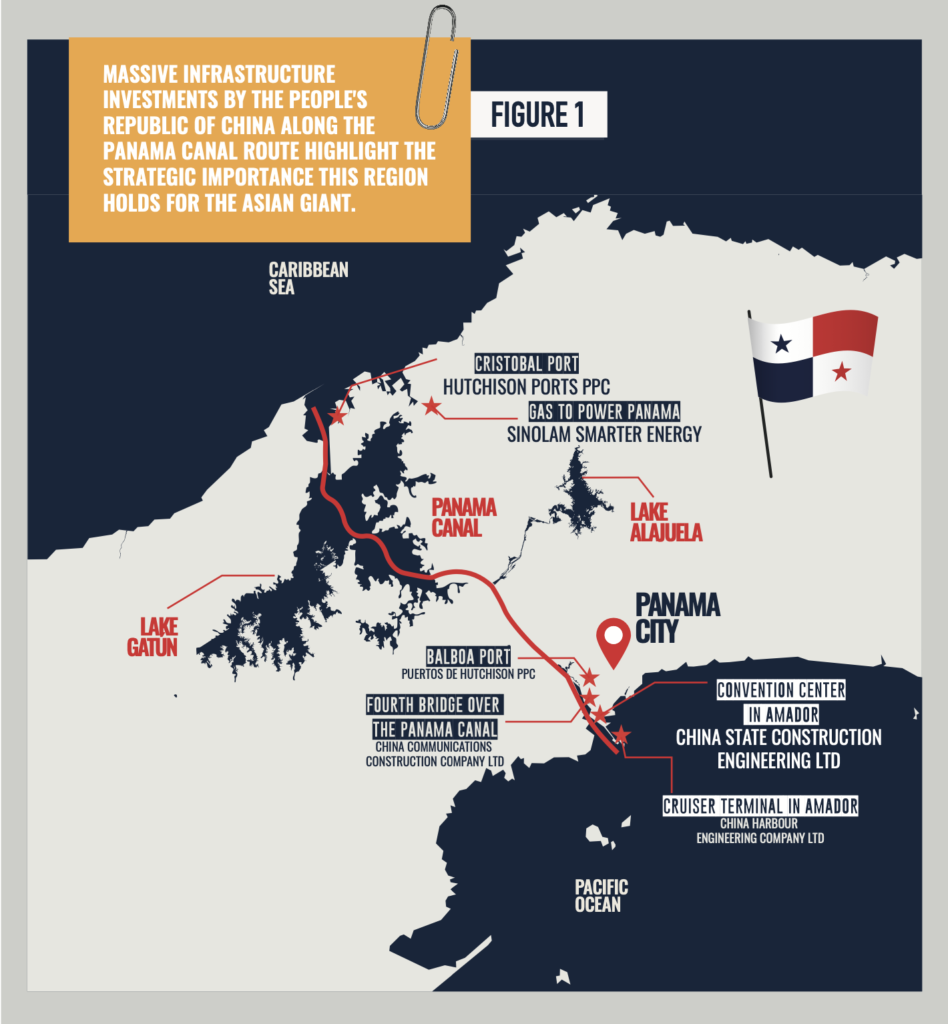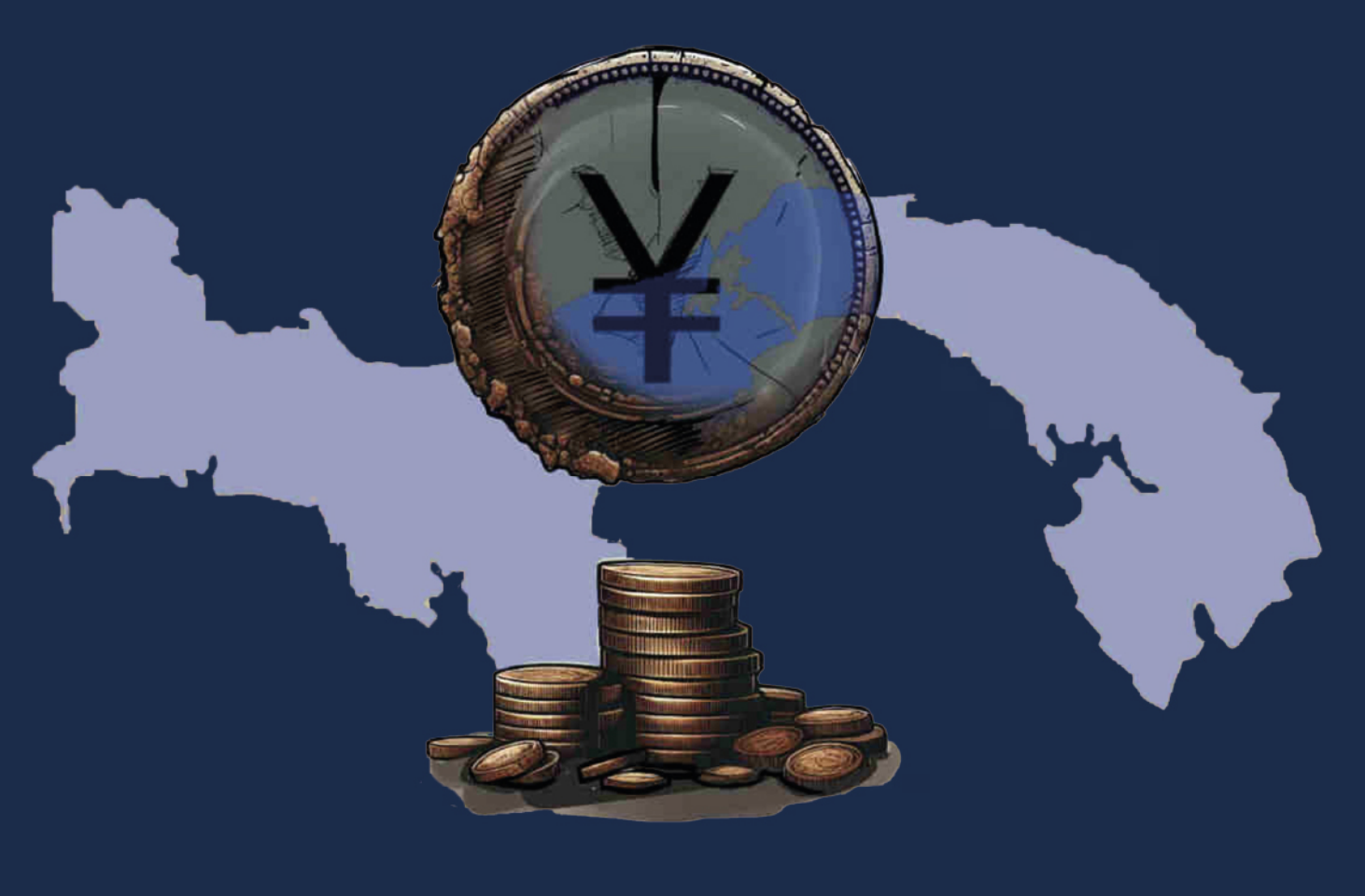Research made by Alonso E. Illueca and Alfredo Castillero Hoyos
Diplomatic Shift and the Arrival of Corrosive Capital
Panama established diplomatic ties with the People’s Republic of China (PRC) and severed its relations with Taiwan in 2017. This shift marked a significant increase in China’s economic presence in Panama, facilitating the entry of «corrosive capital,» which refers to investments characterized by a lack of transparency, accountability, and market competition, typically backed by authoritarian regimes.
The PRC’s corrosive capital in Panama exploits the weaknesses of the young Central American democracy, taking advantage of its relatively weak institutions, insufficient regulations, low corruption control indices, and the fragility of local civil society. As seen in other countries, this combination of factors allows the PRC’s corrosive capital to penetrate easily.
A large portion of the investment from the People’s Republic of China (PRC) in Panama can be classified as corrosive capital. Although labeled as «private,» many companies are subordinated to the control of the Chinese Communist Party (CCP), making them an ideal channel for the Chinese government to use these structures as tools to promote its political and economic influence in the country. This phenomenon highlights an exploitation of Panama’s institutional weaknesses. Although the Constitution prohibits direct foreign control over national territory (except embassies), this regulation is not rigorously enforced and contains significant legal loopholes. These gaps have allowed CCP-linked companies to gain substantial control over strategic projects.
Mechanisms and Impacts of Chinese Investment in Panama
The presence of China’s corrosive capital in Panama manifests in five forms: foreign direct investment, public procurement, development assistance, commercial loans, and portfolio investments. All these investments share patterns of opacity, corruption, and practices contrary to free competition, mainly seen in infrastructure projects.
For example, Panama’s diplomatic transition from Taiwan to the PRC in 2017 was surrounded by controversy. Among the most notable allegations was a supposed $142 million bribe to former President Juan Carlos Varela to facilitate the establishment of relations with China. While some defended this as «non-reimbursable economic cooperation,» the case illustrates how the PRC continually uses forms of assistance to introduce corrosive capital into the country.
The forty-seven agreements signed between Panama and China during the establishment of relations included formalizing diplomatic ties, eliminating diplomatic visas, creating mechanisms for political consultations, and promoting cultural and educational cooperation. They also encompassed strategic, economic, and technical cooperation in investment, trade, transportation, agriculture, and Panama’s incorporation into the Belt and Road Initiative. Additionally, studies were agreed upon for a free trade treaty, a railway project, and agreements on air and maritime transportation, tourism, and extradition. However, the lack of clear information about these agreements and the handling of funds raised concerns about their use to advance PRC political influence in the country.
Indeed, after Panama and the PRC established relations, several companies became involved in controversial projects that fall under the concept of corrosive capital from the PRC permeating the country:

- Hutchison Ports PPC: Operator of the Balboa and Cristóbal ports. Its concession renewal in 2021 was questioned due to a lack of transparency. The company has also been criticized for blocking free competition in the port market.
- China State Construction Engineering Ltd (CSCE): Tasked with completing the Amador Convention Center. This company was selected despite being sanctioned by the World Bank for collusive practices.
- China Harbour Engineering Company Ltd (CHEC): Responsible for the Amador cruise port, which faced significant cost overruns and delays. CHEC has also been linked to corrupt practices in other countries.
- Landbridge Group: Its concession to develop the Isla Margarita project was canceled due to contractual breaches, highlighting the risks of its involvement.
- Sinolam Smarter Energy: Its thermal generation project experienced delays, increased energy costs, and concerns over its link to inflation and the social crisis.
- China Communications Construction Company Ltd (CCCC): Despite being sanctioned by the U.S., it leads the Fourth Bridge over the Panama Canal project, raising concerns over irregularities in its bidding process.
Risks to Sovereignty and Recommendations for Panama
As demonstrated by these investments, many are concentrated around the Panama Canal. The concentration of these capitals near this critical commercial route suggests China’s strategic interest. Companies like Hutchison Ports and CHEC, along with the PRC’s interest in acquiring the trans-isthmian railway, developing the Panama-David train, or building the Chinese embassy on the canal’s banks, among other projects, reveal a clear strategy to exert influence over this critical zone of global trade.
The presence of corrosive capital has already generated instability in Panama. In 2023, the renewal of the mining concession to First Quantum Minerals sparked massive protests. While the demonstrations did not directly target Chinese shareholder participation, the involvement of the PRC’s state-owned Jiangxi Copper in the mining investment highlighted the risks associated with corrosive capital in strategic sectors like mining. The First Quantum case underscores the importance of copper in the global energy transition and China’s influence in this market. With 60% of Panamanian copper destined for China, the CCP’s control over this resource carries significant geopolitical implications.
In 2025, with the arrival of Donald Trump to the White House, the United States has been exerting incremental pressure on Panama based on an allegation of a supposed Chinese control over the Panama Canal. At this juncture, the United States appears to be instrumentalizing the presence of Chinese corrosive capitals in Panama to support its expansionist ambitions, to the detriment of Panamanian sovereignty. In this sense, we could be facing a new form of geopolitical coercion by a third state, using the real and present threat of corrosive capitals for expansionist and hegemonic purposes.
Panama’s institutional weakness facilitates the penetration of such capitals, compromising its sovereignty and democratic stability. Although legal provisions exist to counter these practices, local authorities’ lack of political will and interest in increasing Chinese investment hinder their enforcement.
The possibility of a Free Trade Agreement with China could exacerbate this situation, allowing an even greater flow of corrosive capital. To prevent this, Panama must prioritize diversifying its supply chains, improving transparency, and strengthening its democratic institutions.


